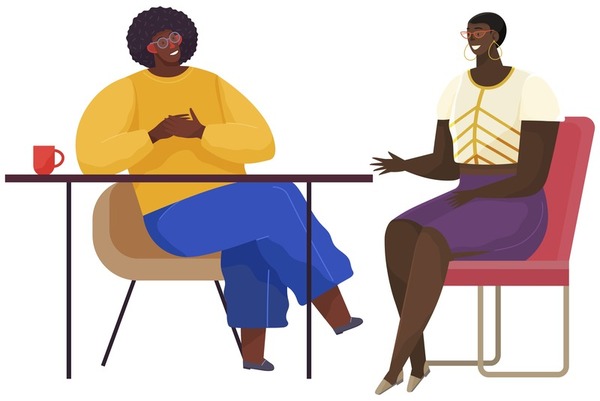Today’s law and ethics exam prep topic deals with dual relationships. Dual relationships are an ethical issue in which there are two or more relationships in play at the same time between a client and a therapist, or a supervisor and a pre-licensed trainee/associate that may cause a blurring of boundaries. Some dual relationships are prohibited and others are unavoidable. All of them, however, require the therapist’s careful consideration. Dual relationships with clients (or current supervisees) that are prohibited include sexual relationships; becoming personal friends; therapeutically treating friends and family members; or engaging in business ventures.
Not all dual relationships are illegal or unethical. There are some dual relationships that are unavoidable, like a therapist and a client who go to the same mosque or who live in the same small, rural town with limited options. When this happens, therapists are encouraged to have a conversation with the client about the dual relationship, along with carefully considering the risk to the client and the impact on the therapist’s clinical judgment.
Ready to test your knowledge on dual relationships? Try our FREE practice test question below!
Dual Relationships Practice Question:
Which of the following scenarios would represent an unethical dual relationship?
A. A therapist receives a referral for a new client from an existing client.
B. A current client and therapist attend the same dance class at a local studio.
C. A couple in treatment ask their therapist to attend their upcoming wedding ceremony.
D. A therapist continues to receive salon services from a hairstylist who became a client.
(Scroll for answer and rationale.)

The correct answer is D: A therapist continues to receive salon services from a hairstylist who became a client. This is an example of an unethical dual relationship that is considered problematic since hiring a client for a service is expressly prohibited. Answer A can create some form of multiple relationship, however it’s not necessary to avoid. According to CAMFT Code of Ethics, in these types of situations, a therapist could proceed while taking appropriate professional precautions to abstain from harming the client. In answer B, there is overlap in a class environment, but it doesn’t create an intense or intimate relationship, so this answer is out. In answer C, a dual relationship would be created if the therapist accepted the couple’s wedding invitation, but it doesn’t necessarily need to be avoided. In this situation, it would be important for the therapist to discuss the clinical and cultural implications of the couple’s request and weigh the potential impact of the decision. So, this leaves D as the best answer.
How Did You Do?
Did you ace this question? If not, what part did you struggle with? Let us know in the comment section below. We’d love to hear from you! If you’re ready to answer more practice questions just like this, TDC offers practical and accessible study programs for CA MFT and LCSW Law & Ethics, MFT CA Clinical, and AMFTRB exams that provide everything you need to successfully PASS your exams with confidence. PLUS, each program includes access to your very own test coach so you have one-on-one help and you’re never alone.
If you need to complete the 3-hour law and ethics CE course before the next license registration period, we offer 2 BBS-approved courses that fulfill this requirement. Both courses are 6 hours. You can choose between either. Here is a discount code that will allow you to save on the course: L&E2023
You can access the courses HERE or HERE.
Already licensed? Our continuing education library includes everything you need from courses on treating suicidality to clinical supervision.
